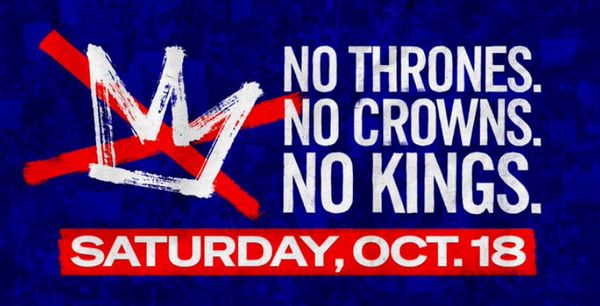FedNow: The Backdoor Control Scheme You Haven’t Heard of
This article was originally published on The Heartland Beat.
While those within the crypto scene have been discussing it for sometime, those just going about their daily lives may not be aware that the Federal Reserve is expected to launch it’s latest instant payment system, called FedNow, by the end of the month. While Federal Reserve spokespersons have touted it as ‘solving the problems that CBDC sought to,’ the inner working of the program will ultimately create the same violations into our privacy and call into the question how free the market really is as a precursor to the CBDC beast that is already at our doorsteps.

In 2015 the Federal Reserve, under the guidance of Fed Governor Lael Brainard, who now works under the Biden Administration as the head of the administration’s Economic Council, launched a Faster Payments taskforce at the behest of the World Bank and organizations such as the Gates Foundation. Their goal was to discuss ways to “improve” financial transactions. In 2017, that taskforce revealed their final report that recommended the Fed create a fast payment system. Skeptics of the initiative outlined how the concept of a fast payment system would be analogous to the CBDC as it would be programmable, meaning it can be controlled by a central authority.
The pilot project to construct FedNow was announced in 2019 and spearheaded by the Boston branch of the Federal Reserved, headed by Kenneth Montgomery. It’s important to note that FedNow is not a new currency, but rather a new rail or pipeline for how currency is exchanged. However, because it is programmable, it contains the exact same capabilities that a CBDC would.
The Features of FedNow will be rolled out in phases, with the first phase set to take effect This month. While some future features are known, it is currently unknown when and during what phase they will be rolled out. The deciding factor of said features comes from the FedNow Community, a coalition of 1600 entities. The payment system is an instant payment rail using the ISO 20022, which will allow banks to process payments 24/7 and within seconds. However, it’s list of benefits to consumers ends there.
FedNow is currently listed as ‘agnostic’ meaning institutions can build functionality on top of the default. Within those default features included are things like bank to bank and person to person transaction limits and the ability to blacklist accounts through FedNow’s “fraud prevention” measures.

Current Layout:
Under the July launch of FedNow, major banking institutions will need to enroll in the FedNow program, and many already have. Under the current system layout, only major banking institutions will be able to utilize FedNow functionality by creating a “Master Account.” With the current payment processing systems switching over, only master accounts will be able to process payments in general meaning programs like Venmo, Cashapp and others will have to send payments through a “master account” holder institution in order to function. Master account holders currently have three types of programs they can have on their account, called “nodes.” These nodes will process payments between master accounts through what is known as the ISO 20022 messaging system. Each Node has a participation type which comes with its own fees structures and limits. These participation types include Customer Credit Transfer (person to person transactions), Liquidity Management Transfer (bank to bank) and Settlement Only.
It is important to note that Settlement Only accounts would exist only to generate reports on transactions processed. Report generation is a built-in function for all other node types as part of their “fraud prevention” systems. This also means that every digital transaction is catalogued by the Federal Reserve for the purpose of report generation and will result in an end to financial privacy moving forward. In fact, there is no mention of privacy in any documents pertaining to FedNow, further illustrating it will not be a factor in the program’s usage.

As part of FedNow’s fraud prevention services, banking institutions will be able to set transaction limits, set limits on accounts and blacklist accounts. However, these functions could change in the future and eventually lead to total control of your bank account being ceded to the Federal Reserve, should they see fit.
In a video released in August of 2020, Federal Reserve representatives including Esther George, Lael Brainard and Ken Montgomery, outlined the roadmap and plan for FedNow. In their discussion, it was revealed the FedNow program end game is to evolve it into a CBDC so they can compete with Chinas CBDC and eventually let AI and machine learning technology run fraud prevention and automatically limit accounts, transactions and blacklisting.
With machine leaning, It will eventually become possible to set conditions under how a transaction will be denied entirely. FedNow will also open the door to asset tokenization functionality in future phases.

Asset tokenization is the practice of making a virtual investment vehicle on the blockchain derived from tangible, valuable things like homes, gold, art and collectibles, and even intangible instruments such as U.S. Treasuries and contracts. For example, if you had a painting valued at $20,000, asset tokenization could convert ownership of this asset into 20,000 tokens. Each token represents fractional ownership in the painting. In this example, it would require 20,000 asset tokens to own the painting fully.
If FedNow is allowed to progress towards the tokenization of real-world assets, it will mean that in the future, you will own nothing.

At this time, banks with master accounts have the option to join as a settlement account and simply observe transactions and generate reports. However, based on available information, all master accounts will eventually be obligated to upgrade to transaction accounts, which will mean an end to privacy in the US and mean the entire financial system will eventually be completely controlled by the Federal Reserve.
Institutions will likely adopt FedNow without thinking about the future consequences based on the benefit of instant transactions and after a few short years, old processes will be phased out.
If nothing is done to limit this process, we could be looking at the rollout of a red carpet for complete financial control. At this time, the deciding factor for how we move next rests on the shoulders of your banking institution. If you don’t support this role out, let your financial institution know what enrolling, even as a settlement account, means and if necessary, move to another institution.




